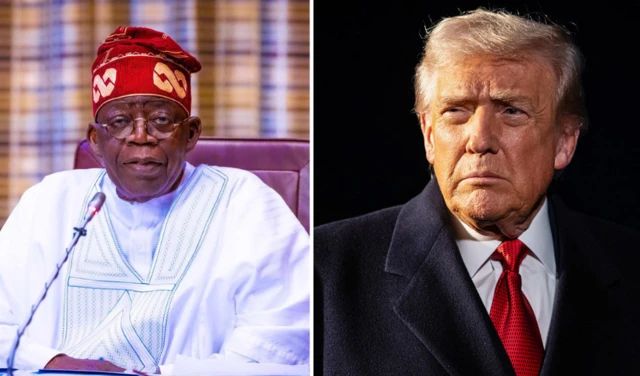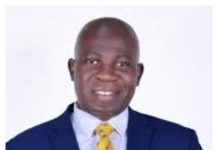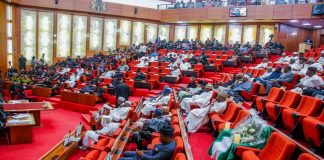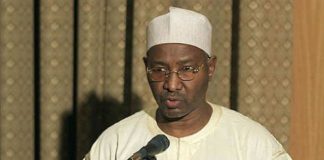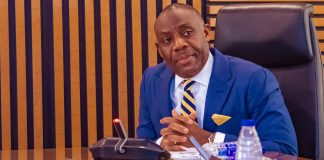🌿 Ruzu Non-Alcoholic Herbal Bitters
Ruzu Non-Alcoholic Herbal Bitters is a natural health supplement specially formulated to:
- ✅ Promote general wellness
- ✅ Detoxify the body
- ✅ Support the treatment of various ailments
Made from a powerful blend of 100% organic and medicinal herbs, Ruzu is completely alcohol-free, making it ideal for:
- 👪 All age groups
- 🌱 Health-conscious individuals
- 🌿 Anyone seeking non-alcoholic herbal remedies
Whether you're looking to boost your vitality, cleanse your system, or support healing the natural way, Ruzu Bitters offers a trusted herbal solution.
As the US Congress considers a bill to impose sanctions on twelve northern governors, traditional rulers, and senior judges accused of complicity in what American lawmakers describe as “Christian genocide” and religious persecution under Nigeria’s Sharia and blasphemy laws, a significant diplomatic dispute is developing between Nigeria and the US.
This comes after Nigeria was recently designated as a “Country of Particular Concern (CPC)” due to alleged systematic breaches of religious freedom by US President Donald Trump.
Trump bemoaned the “mass killing of Christians” in Nigeria in a post on Truth Social on Friday. He also ordered the House Appropriations Committee, Chairman Tom Cole, and Congressman Riley Moore to look into the matter and get back to him very once.
In Nigeria, thousands of Christians are being murdered. This mass murder is the fault of radical Islamists. Trump declared, “America cannot stand by while these crimes go on.
The Nigeria Religious Freedom Accountability Act of 2025, a bill introduced by Republican Senator Ted Cruz, is at the center of the dispute.
The bill seeks direct punishments against governmental officials and religious authorities who are accused of encouraging or condoning attacks on Christians and other religious minorities, and it explicitly names Nigeria as a Country of Particular Concern.
A list of Nigerian officials, including governors, judges, and monarchs, who have “promoted, enacted, or maintained blasphemy laws” or “tolerated violence by non-state actors invoking religious justification” would be submitted by the US Secretary of State within ninety days of the bill’s passage.
Under Executive Order 13818, the Global Magnitsky Human Rights Accountability framework, those designated may be subject to financial restrictions, asset freezes, and travel bans.
Focus on the Northern States
The law focuses on states that have implemented Sharia-based penal codes, starting with Zamfara State in 1999 under then-Governor Ahmad Sani Yerima.
Eleven other northern states—Kano, Sokoto, Katsina, Bauchi, Borno, Jigawa, Kebbi, Yobe, Kaduna, Niger, and Gombe—adopted comparable Sharia legal systems in less than two years.
The system created parallel Islamic courts alongside secular ones, extending Sharia’s jurisdiction from personal and family law to criminal and public morality.
States like Kwara, Kogi, Benue, Nasarawa, Taraba, and Adamawa, on the other hand, continue to follow traditional law and limit Sharia to private affairs like marriage, inheritance, and family issues.
The Supreme Council for Sharia recently announced plans to establish offices in the southern Nigerian states of Oyo and Ogun, which sparked tensions.
Before the council explained that the goal was to create arbitration panels for Muslim-related problems rather than official Sharia courts, the news caused public outcry and conflicts between Muslim and Christian groups.
Senator Cruz accused Nigerian authorities of institutionalizing discriminatory legislation and ignoring acts of religious violence when defending the bill in the Senate.
“Religious persecution and violence against Christians and other minorities in Nigeria is endemic,” he declared.
Since 2009, dozens of communities have been devastated, 20,000 churches and religious institutions have been destroyed, and over 52,000 Christians have been slain. In many instances, the federal and state governments are complicit and have not taken any action.
The senator claimed that since Sharia law was put into effect in 2000, extremist organizations have gained confidence and persecution under the pretense of religious morality has been made lawful.
Nigeria’s blasphemy laws, which are present in almost all northern legal systems, are likewise criticized by the proposed US legislation.
States like Kano, Bauchi, Sokoto, and Katsina have garnered international attention for executing people for supposed blasphemy, including cases involving kids and musicians who were charged with “insulting Islam.”

